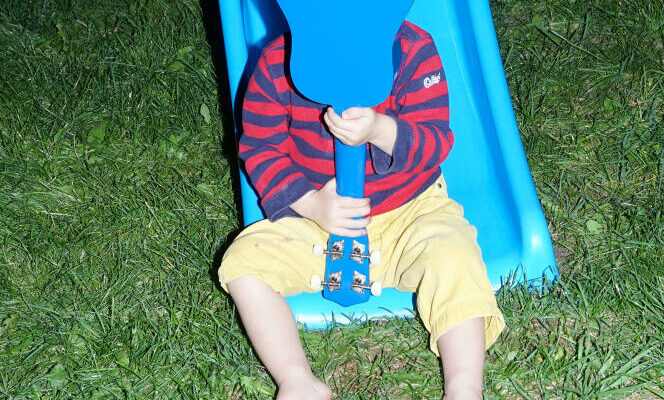A ” nightmare “. A ” hell “. There ” galley “. These comments from SNCF users do not refer to the strike which led to the cancellation of half of the trains during the first weekend of the school holidays. The “nightmare” here is the child sitting in the seat next to us or the baby facing us in the square where we sat. For several years, in the press and on social networks, testimonies of travelers bothered by the presence (noisy, of course) of other people’s offspring have proliferated.
In his latest book, To live without. A philosophy of lack (Climats, 320 pages, 21 euros), published on January 24, Mazarine Pingeot reflects on the marketing notion of “without” and denounces this trend where absence becomes a commercial argument, also a way of masking the hidden defects of our society. After “gluten-free”, “sugar-free”, “contact-free” or “alcohol-free”, are we witnessing the beginnings of “child-free”?
A phenomenon already studied by Corinne Maier in No Kid (Michalon, 2007): more and more French people say they do not want to reproduce (13% even say they regret having given birth, according to a 2022 YouGov study). On social networks, “dinks” (dual income, no kids, “ two incomes, no children”) proudly display the advantages of a life as a couple without children, when the “ginks” (green inclination, no kids), committed to ecology, imagine saving the planet by giving up on procreation. In fact, since 2010, the birth rate has fallen by almost 20% in France. Which prompted Emmanuel Macron to launch a solemn appeal to “demographic rearmament”, on January 16.
Obviously, a malaise exists and its expression is sufficiently uninhibited for the market of “no kids” activities to have emerged. In the United States, the trend is old and has grown to such an extent that even Disney has adapted part of its offer. Increasingly frequented by adults decked out in Mickey headbands, certain activities of the global entertainment giant have been in tune with “kids free”. Its enormous cruise ships which roam the Caribbean are beginning to be structured into “adults only” and “kids only” zones, which are strictly hermetic.
“A service like any other”
Promising a certified service with reduced or no content of individuals under 15 sells. The TUI group, world leader in travel, offers a wide range of establishments that dazzle “a relaxing holiday in a dream setting reserved for over 16s”. The French tour operator FRAM promises “calm and serenity all year round” for those who want to stay among grown-ups. The site Adultsonly.fr lists “more than 1,000 hotels around the world in more than 100 countries”, mainly in Spain, Greece and Italy, having made this choice. Around twenty campsites in France are also reserved for adults.
You have 74.67% of this article left to read. The rest is reserved for subscribers.
